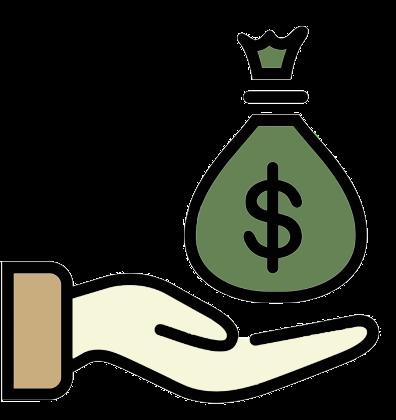
3 minute read
Fair Wages
by: Lucy Jang layout by: Sophia Park
The topic of fair wages has been a hot button issue for many years, with debates over the minimum wage and the income gap between the rich and the poor. According to Law Insider, a fair wage means a wage fairly and reasonably commensurate with the value of the services or class of service rendered. The importance of fair wages is that they can have a significant impact on the well-being of employees and the success of businesses. There is a general idea of what fair wages are, but digging deeper, what can be defined as the “correct” standard of fair wages is a divisive issue in society.
Advertisement
Imagine that there are three software developers doing the same task in three different software companies A, B, and C. Company A is a large software company with highly productive workers, and company B is a start-up software company that has workers with a lower productivity compared to company
A. Productivity here can be defined as the measure of economic performance that compares the amount of goods and ser- vices with the amount of input to produce these goods and services. Should the software developers at company A and B be paid the same wage? Some would agree, but others would argue that the worker with the higher productivity rate should receive a higher wage in the sense that they “contribute more” to their company. This can be an clashing matter for employees and employers.
There can be many different reasons why the compensation of two employees is different. Pay gap is the unexplained difference in compensation between a member of the highest paid group, and a member from a lower paid group. Pay disparity on the other hand, is the more refined term of pay gap. Pay disparity takes into account legitimate reasons for compensating employees differently, such as education level, experience, productivity, and work ethic. Next, when working in the same company, a worker who has worked in that company for 12 years may receive a higher salary than a person who was hired three months ago. A person with 10 years of experience at the company can use their knowledge to increase the productivity of a company by converting inputs such as labor into outputs such as sales, goods, or services more efficiently. Thus, the existence of a pay gap allows companies to provide pay according to how much someone can contribute to the company. The survey “The 7 Key Trends Impacting Today’s Workplace”, was conducted by the employee engagement firm TINYpulse, and included more than 200,000 employees from more than 500 organizations. The study found that 13% of workers are motivated by feeling recognised and encouraged. However, pay disparity can create large wealth gaps between people with a higher productivity, and people who are less productive and therefore struggle to find a job or earn higher wages. This can lead to a cycle of poverty and economic disadvantage that is difficult to break out of. On the other hand, if everyone doing the same work were paid the same, level of education or experience would not matter at all, and this would naturally discourage people from working hard to get into good school, to learn about their field of work to improve their company, and would reduce the work ethic and competitiveness between employees.

So what is the correct standard for fair wages, and how should people be incentivized to work harder while reducing the wealth gap? This is where the role of government becomes crucial. It is the government’s role to provide cash or some form of aid to families and individuals who are unable to find work. Food, shelter, clothing, and healthcare are basic needs for everyone, and the government needs to provide these types of resources to people who are in need of them.
Although the invisible hand of the market can act as a guideline for fair wages, the government needs to be involved in certain areas to make adjustments to create a fair living environment for people of diverse economic backgrounds. It can be difficult to maintain the well-being of all in such a competitive economy. The government can provide and contribute to social welfare by offering programs related to food, shelter, clothing, livelihood, and unemployment compensation. The government can play a massive role in supplying a better standard of living for everyone, regardless of their social or economic background. However, while social welfare programs can help to address some of the symptoms of poverty and inequality, they do not necessarily address the underlying causes. Therefore, it is crucial that governments take a comprehensive approach to addressing poverty and inequality, including efforts to promote economic growth, increase access to education and training, and address structural issues such as discrimination and unequal access to opportunities. Only through a multifaceted approach can we hope to create a more just and equitable society for all.




